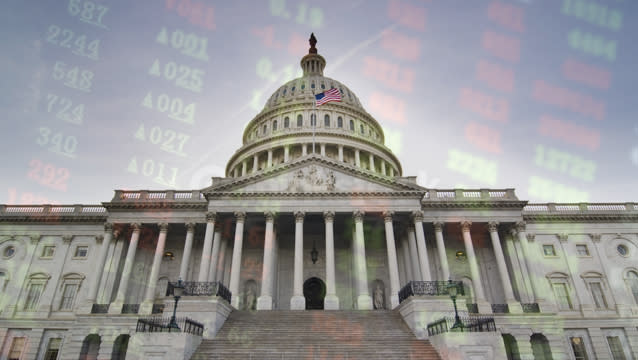Are Average Investors Better Off Since Crisis? Top Regulator Says: Not Really

CFTC Commissioner Bart Chilton is an outspoken advocate for financial reform to protect consumers, but he’s also outspoken about the lobbying and litigation that hold up the process.
And there never seems to be an absence of stories that could leave the average investor feeling like the markets are, quite frankly, rigged against them. And that not much has changed post-crisis to better protect their interests and level the playing field.
Take last week. First comes a story from Bloomberg, reporting that traders have allegedly been manipulating benchmark foreign exchange rates used to set the value of trillions of dollars of investments. Then, a report comes out revealing that an elite group of traders can access the routinely market-moving consumer confidence report before its official release, for the right price.
Related: Big Banks Still Write the Rules: Fmr. Inspector General of Bank Bailout
So we wanted to back up and assess the situation for average folks: five years after the financial crisis and one massive financial reform bill later, are average investors and savers really any better off? You may be shocked to hear what Chilton tells The Daily Ticker in the accompanying video.
He says when it comes to the CFTC (Commodities and Futures Trading Commission – they regulate the futures markets including derivatives), they’ve done the best job in terms of shoring up investor protection when it comes to “swaps.” Chilton says the market has gone from being opaque to one regulators can see. You may recall these were partly responsible for nearly bringing down the financial system during the last crisis.
Chilton says they’ve done the worst when it comes to protecting customer segregated funds. This is customer money that is supposed to be sacrosanct, and even after MF Global and Peregrine Financial tapped into these funds before imploding, Chilton says they are still vulnerable.
Chilton has also mentioned the need for regulators to take a closer look at the unregulated cyber currency bitcoin.
We asked Chilton about this again, given the revelations from the Guardian and whistleblower Edward Snowden that Americans’ phone records are being handed over to the NSA, and through PRISM, potentially their digital footprint, too.
Related: Did Obama Just Destroy the Internet?
While Chilton says he can understand the argument for privacy offered in the form of an unregulated currency, he’s not sure there isn’t a government oversight role to make sure it’s not being used for nefarious activity. However, we’d point out that a big bank like HSBC is heavily regulated and it wasn’t too long ago it agreed to pay $1.9 billion to settle money laundering charges. “Touché,” says Chilton.
Related: Bitcoin Prices Blast Through $100, Driving Speculators Wild
Amid reports that both Chilton and CFTC Chairman Gary Gensler may be out when their terms expire, see the video for Chilton’s response. As for why this matters, the CFTC is at a crucial point in trying to get derivatives reform done. Chilton tells us how a shakeup would impact the CFTC’s efforts to rein in those “financial weapons of mass destruction,” as Warren Buffett famously called them (referring to one type – credit default swaps).
Tell Us What You Think!
Got a topic you’d like covered? Have a guest you’d like to see interviewed? Send an email to:thedailyticker@yahoo.com.
You can also look us up on Twitter and Facebook.
More From The Daily Ticker:
Mortgage Rates Aren't Going Back Down: Fannie Mae Economist
Farm Bill is Like Welfare for the Wealthy: Mark Bittman
Why Tesla’s Winning and Other Electric Car Companies Are Failing
